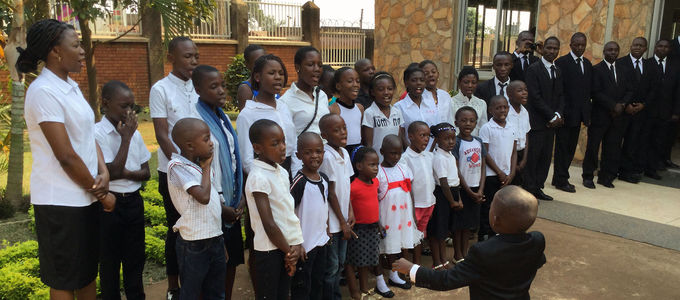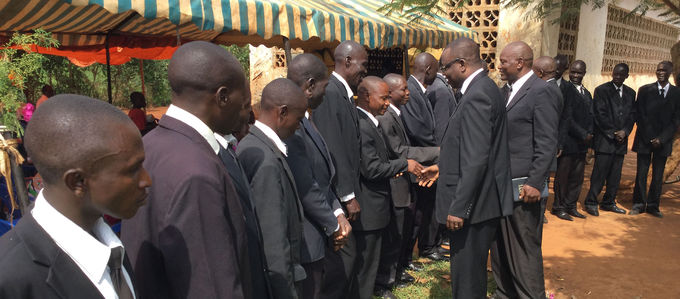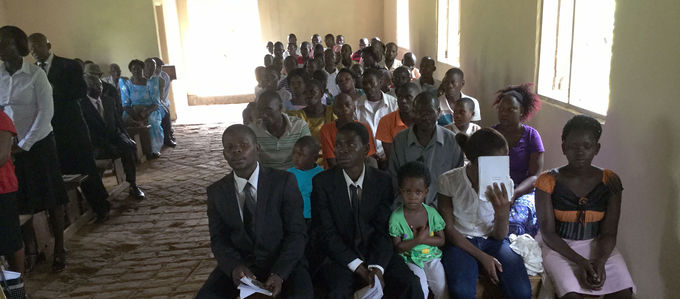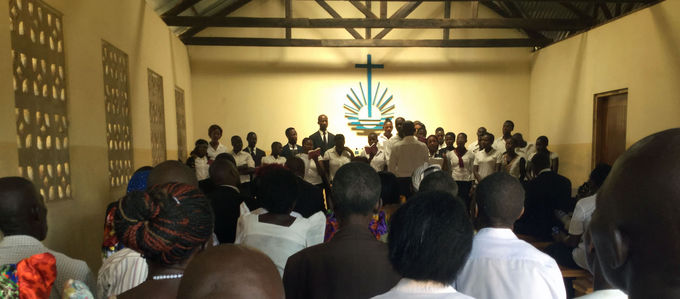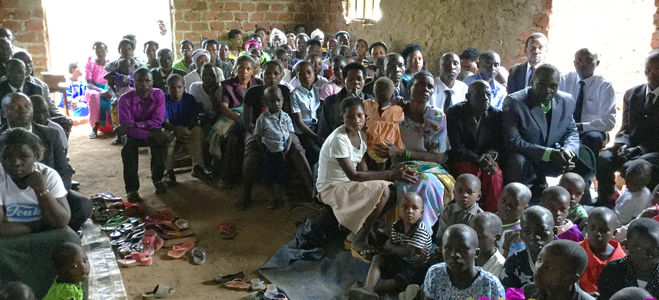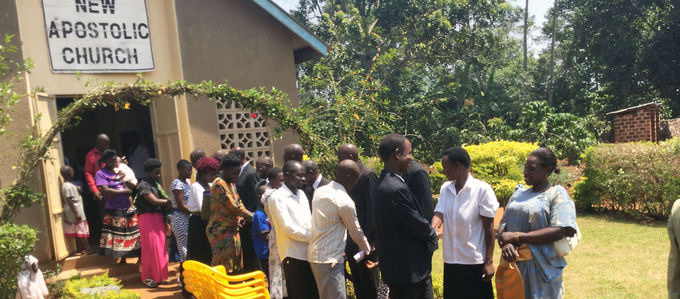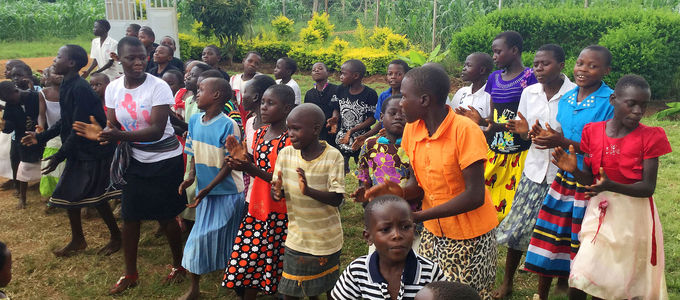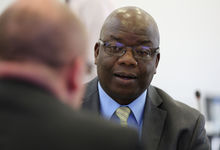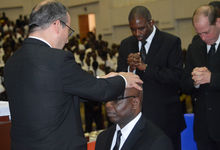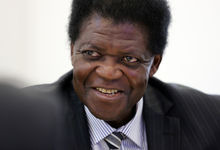Service will be aired on national TV
It is not unusual for the Church to transmit its divine services. When a service is aired on national television, however, it is a little unusual. That is what is going to happen in East Africa this weekend .
This coming Sunday, 24 July 2016, Chief Apostle Jean-Luc Schneider will be visiting Kampala, the capital of Uganda. The New Apostolic Church was founded here in 1979. In 1995, Richard Fehr was the first Chief Apostle to visit this country in the heart of Africa. For Chief Apostle Jean-Luc Schneider it is already the second visit.
There is a great deal of excitement in Uganda. District Apostle Joseph Opemba Ekhuya writes, “The preparations began in January. The mood on the ground is good.” He says that the visit of the Chief Apostle is expected to generate new energy. For the District Apostle it will be the first time that he will be hosting the Chief Apostle, and he says that he is experiencing a mix of joy and nerves. His greatest concern right now is for South Sudan. Established in 2011, this country borders Uganda in the north, and it looks as though it is on the brink of a renewed civil war. The Sudanese Apostle Morris Ukuni is invited to Kampala, but whether he can come is very uncertain. Apostle Ukuni is scheduled to arrive in Kampala on 21 July by Kenya Airways, but Kenya Airways have suspended flights to Juba, the capital of South Sudan.
A mass choir and an orchestra of traditional instruments
The Chief Apostle will celebrate two divine services: on Friday he will conduct a service for the ministers and their wives from Kenya, Tanzania, and Uganda; the service on Sunday will be broadcast by the Uganda Broadcasting Corporation and Kenya Broadcasting Corporation to Kenya and Tanzania.
In the service on Sunday, a 350-member mass choir will sing. The choir members come from villages around Uganda. The choir will be singing several new songs in this service, which will then also be sung in the local congregations and become part of the repertoire of the choirs. An instrumental group (adungu group) from Lira in northern Uganda is also expected. The adungu is a stringed instrument that looks like an arched harp. The Alur people in north-western Uganda are known for these traditional instruments.
Dozens of ethnic groups, many traditions
Uganda is one of the most ethnically mixed countries. Dozens of ethnic groups with their own languages, cultures, and traditions live together peacefully. The Baganda, Ankole, Basoga, Bakiga, Bagisu, Banyoro, Batoro, Bagwere, Bakonyo, and the Banjaruanda—and many other Bantu-speaking people are at home here. English and Swahili, which became the official languages in 2005, as well as Ganda, are commonly used and unite the people and facilitate communication among the different ethnic groups. But in everyday life, people speak their local dialects and languages. Yet despite all the different traditions, Uganda is a Christian country. Some 85 per cent of the people profess Christianity. Many Ugandans are Roman Catholic or Protestant. The New Apostolic Church has about 60,000 members, who attend services in over 463 congregations. They are looked after by six Apostles, five Bishops, and a further 1,300 ministers.
An independent District Apostle Area since 2007
Edward Deppner and his son, Michael Deppner—who is today District Apostle in the Democratic Republic of the Conge—both did missionary work in Uganda. Until 2007, the New Apostolic Church in Uganda was administrated first by Canada and then by the USA. District Apostle Leonard Kolb from Chicago was the responsible District Apostle here for a number of years, until Chief Apostle Wilhelm Leber decided to establish the new District Apostle Area East Africa. He appointed Shadreck Lubasi as its first District Apostle. He went into retirement in April 2015, and since then District Apostle Joseph Opemba Ekhuya (46) has been responsible for the East Africa district. He lives in Nairobi in Kenya, is married, and the father of three children. He speaks Luhya, Swahili, and English. The New Apostolic Church East Africa is comprised of Kenya, Tanzania, and Uganda; South Sudan was added recently.
The “pearl of Africa”
Sir Winston Churchill called Uganda the “pearl of Africa”. Grasslands and rainforest, mountains, and large bodies of water such as Lake Victoria and the White Nile—the biodiversity of Africa is represented here in a relatively small space. The big five are at home here too, but also many other species. There are ten national parks and six wildlife reserves. Uganda certainly lives up to its nickname. But also here the people have realized just how fragile the environment is. The mountain gorillas of Uganda have become synonymous for the preservation of nature.
Article info
Author:
Date:
Keywords:
Peter Johanning
19.07.2016
Uganda,
journeys of Chief Apostle,
Music,
Congregational life


